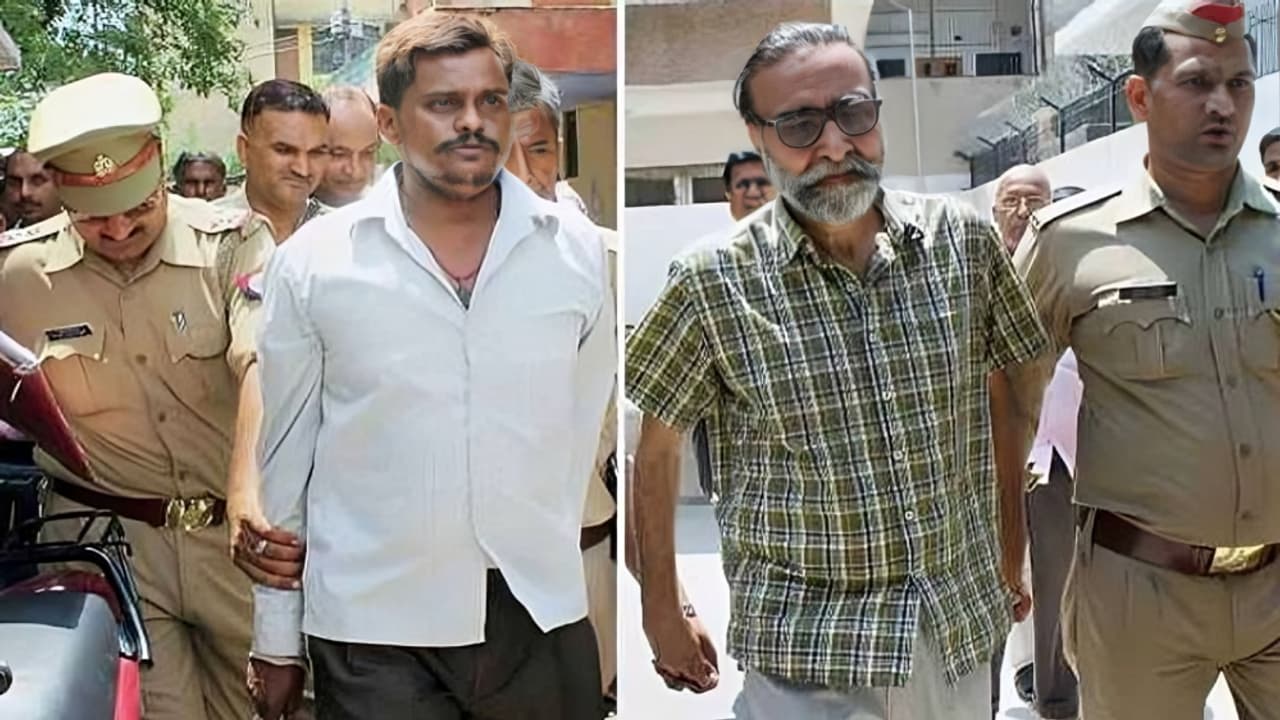Surendra Koli, arrested in 2006 for the Nithari serial killings in Noida, was accused of murdering and cannibalising several children and women between 2005 and 2006. He was convicted and sentenced to death in multiple cases.
The Surendra Koli case has finally closed. The Supreme Court of India has set aside his conviction in the last remaining case linked to the infamous Nithari serial killings. Already acquitted in 12 other cases, Koli stood convicted in one case since 2011. The court ordered his immediate release if he is not wanted in any other matter.
Who is Surendra Koli
Surendra Koli was the domestic helper of businessman Moninder Singh Pandher in his house in Sector-31, Noida, near Nithari village, Uttar Pradesh.
The Nithari serial killings came to light in late 2006 when human remains were discovered in the drain behind Pandher’s house. Koli was accused of luring children and young girls to the house, sexually assaulting them, murdering them, dismembering their bodies and disposing of the remains.
He was arrested with Pandher in December 2006.
The original convictions & sentences
Several trials were held between 2009 and 2012. Koli was found guilty in multiple murder and rape cases related to the Nithari killings.
In February 2011 the Supreme Court upheld his conviction in one of the cases and the death sentence. In 2015 the Allahabad High Court commuted his death sentence to life imprisonment owing to an inordinate delay in processing his mercy petition.
The turning point: Acquittals begin
In October 2023, the Allahabad High Court acquitted Koli in 12 of the 13 cases, citing serious problems in the investigation and evidence. The court criticised the investigating agencies, stating the probe was ‘casual and perfunctory’.
On 30 July 2025, the Supreme Court dismissed 14 appeals by the Central Bureau of Investigation (CBI) and Uttar Pradesh government against these acquittals.
The final blow: Supreme Court acquittal
On 11 November 2025, the Supreme Court allowed Koli’s curative petition, his last legal remedy, and set aside his only remaining conviction from 2011.
The bench (Chief Justice B.R. Gavai, Justices Surya Kant and Vikram Nath) held that it would be inconsistent and unjust to maintain one conviction when all other related cases founded on the same evidence were overturned.
The court ordered: “The petitioner be released forthwith, if not wanted in any other case.”
Why did the court acquit him? Evidence issues
The surviving conviction rested mainly on Koli’s alleged confession and the recovery of a knife from a lane behind his residence, the same evidence that courts found unreliable in other cases.
The court pointed out that recoveries must be from a place exclusively known to the accused and supported by a disclosure statement under Section 27 of the Indian Evidence Act, this was not followed.
Probe flaws
The Allahabad HC in 2023 had said the investigation by the police and CBI was ‘botched up’, noting they failed to probe a possible organ-trade angle and overly focused on Koli.
The Supreme Court echoed concerns about the investigation and evidence, thereby granting relief.
What the verdict means
With this order, Surendra Koli becomes free, provided he is not held in any other case. It marks the closure of one of India’s most shocking criminal cases, the Nithari serial murders.
It raises serious questions about the criminal-justice system: how such serious trials were conducted, how evidence was gathered and what safeguards existed against miscarriage of justice.
Impact on victims and public perception
The Nithari killings had shaken the nation: children went missing, skeletal remains were found behind a house in Nithari village. Victims’ families had waited years for justice.
The acquittal may bring relief for Koli but leaves many unanswered questions for those whose daughters were lost. Some critics argue this verdict may reduce public trust in police investigations and the trial-system when clear convictions turn into acquittals years later.
Timeline of the Nithari case: A quick look
2005-06: Disappearances and killings in Nithari village, Noida.
December 2006: Skeletal remains found behind house of Pandher; Koli and Pandher arrested.
2009-12: Various trials result in convictions of Koli (and Pandher) in multiple cases.
Feb 2011: Supreme Court upholds one of Koli’s convictions and death sentence.
Jan 2015: Allahabad HC commutes Koli’s death sentence to life imprisonment.
Oct 2023: Allahabad HC acquits Koli in 12 cases, citing poor investigation.
July 2025: Supreme Court dismisses appeals by CBI and UP government against those acquittals.
Nov 11 2025: Supreme Court allows curative petition, acquits Koli in last remaining case.
Some key legal and social questions raised
- How did such a large number of cases (16 cases originally) hinge on similar evidence and still result in so many acquittals?
- Was the investigation thorough and fair? The courts suggest major lapses.
- What compensation or closure do the victims’ families now get? The verdict ends the legal process but may not end emotional trauma.
- What reforms are needed so that future investigations and trials are more robust, and victims do not wait decades for answers?
The extraordinary case of Surendra Koli, once convicted and sentenced to death, now completely acquitted by the Supreme Court, closes a dark chapter of Indian criminal history. But the case also leaves behind deep scars – for the families of the young victims, for public faith in the justice system, and for the trust that investigations will be carried out with fairness and rigour.
(With ANI inputs)
